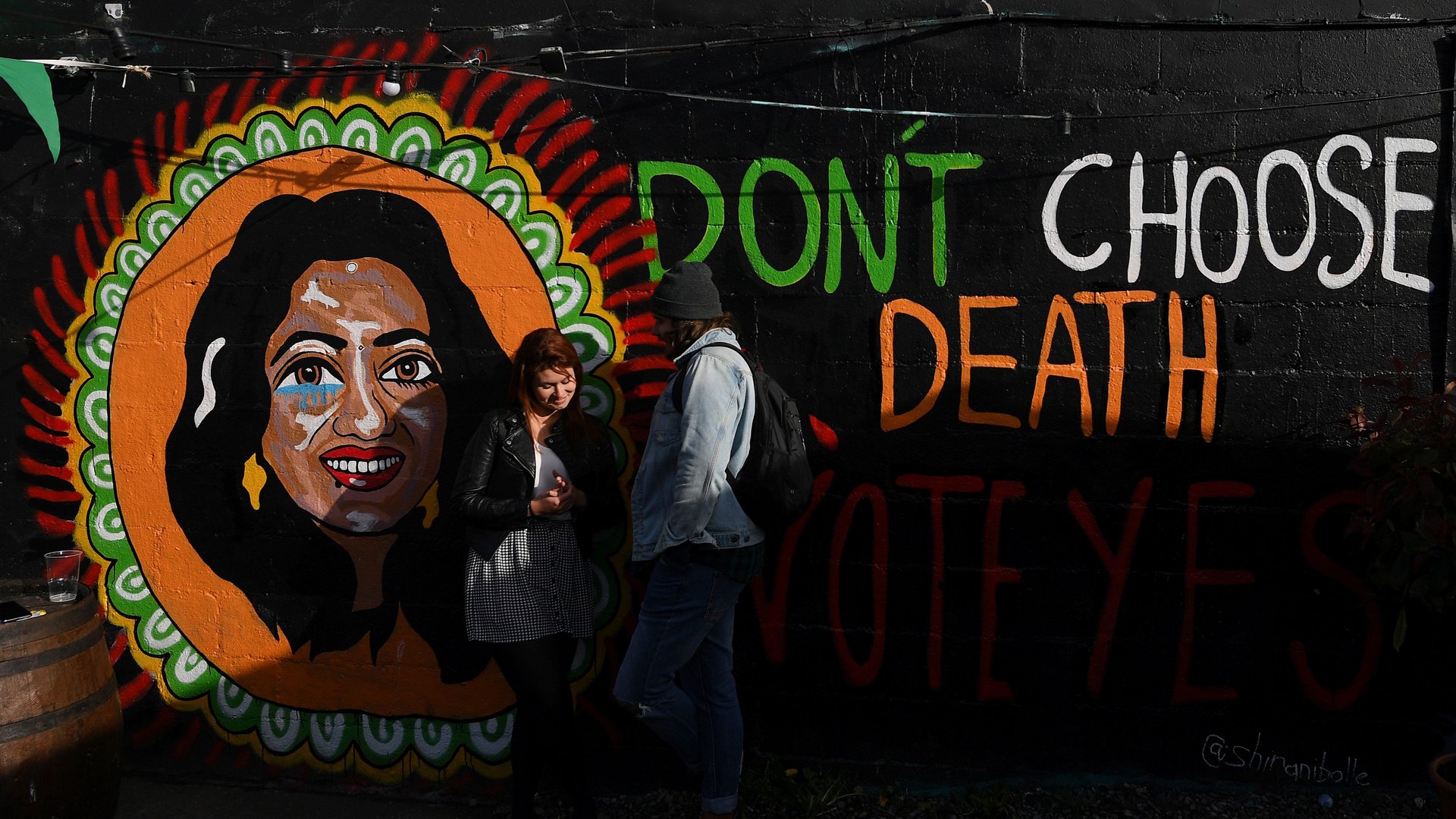The woman who became the face of Ireland’s campaign for abortion rights
Today, Irish citizens are voting on a referendum to repeal the country’s abortion ban.


Today, Irish citizens are voting on a referendum to repeal the country’s abortion ban.
Currently, the constitution’s 8th amendment, established in 1983, says an “unborn child” has the same rights as its mother. Irish women who want abortions currently must to travel abroad to have them.
As of yesterday, 45% voters were in favor of changing the law, 37% wanted the ban to stay in place, and 18% were still undecided.
As prime minister Leo Varadkar noted in an official statement, “We already have abortion in Ireland, but it’s unsafe, unregulated and unlawful and […] we cannot continue to export our problems.”
At least 170,000 Irish women are believed to have had abortions outside the country since 1980. Those who don’t have the means to travel sometimes find other ways to have abortions, albeit unsafely and illegally. Getting an illegal abortion within Ireland can lead to a life sentence in prison.
In Ireland, abortion is only allowed when the mother’s life is in immediate danger—and sometimes even then it has been denied. Rape and incest are not considered valid reasons to have abortions. Neither are serious fetal deformities—pregnant women are forced to carry the pregnancy to term even when they already know the fetus won’t survive. That’s what killed Savita Happanavar.
Happanavar’s face has become the symbol of the “Yes” campaign to end the abortion ban. An Indian dentist, she died in 2012 at 31 in Galway, Ireland, after being denied an abortion while naturally miscarrying. The miscarriage took five days, after which she developed sepsis and died.
Her husband later told the press that they repeatedly asked for an abortion to save Savita’s life, and were turned away with the answer “this is a Catholic country.“
But Catholic countries still can show independence from the religion. Three years ago, Ireland itself became the first country in the world to legalize gay marriage by popular vote. Last year, Ireland elected its first openly gay prime minister, Varadkar. Today’s vote will test how Ireland weighs women’s lives against the rules of the church.